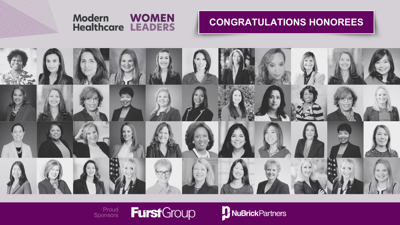The hospital’s search for a new executive was down to two finalists. They were leaning toward Mark, but it was clear to me that John was a better fit and a stronger leader. So why was John lagging behind as the final interviews approached?
By Sherrie Barch
Furst Group President
The hospital’s search for a new executive was down to two finalists. They were leaning toward Mark, but it was clear to me that John was a better fit and a stronger leader. So why was John lagging behind as the final interviews approached?
It was simple. John knew he was initially the underdog, and he became so focused on his competition that he neglected the very qualities that had brought him to the table. I pulled him aside.
“This job is yours to lose,” I told him. “You’re managing to your competition instead of touting your strengths. You’re the best candidate. The board likes you. They want to hire you. But you have to forget about the other guy and focus on who you are and what you can do for this organization.”
It worked. John took the hint, got the job, and has been thriving ever since.
I was reminded of this recently as I read an article by Joan Magretta in Harvard Business Review, “Stop Competing to Be The Best.”
Magretta, a frequent champion of management strategist Michael Porter, says we should “compete to be unique. Focus on innovating to create superior value for your chosen customers, not on imitating and matching rivals.”
“In War, there can only be one winner,” she adds. “Not so in business, where companies like WalMart and Target can thrive and co-exist.”
That is why we warn our clients to beware of hiring the perfect candidate. Sometimes “the best” isn’t always what the search profile dictates. “The best” isn’t necessarily the most experienced or the most visionary. “The best” is what the best fit is for your company, bearing in mind the culture and the timing. "The best" is also the one who represents where you want to be as an organization, the one who can craft and attain that vision -- not just what you are today.
So stop worrying about the competition and, more important, don’t limit your goals to competing with them. You may end up adding to their success without even knowing it. As branding expert Rob Frankel notes, success is when your customer sees you as the only solution to their problem – a decision in which the competition has faded from view.


